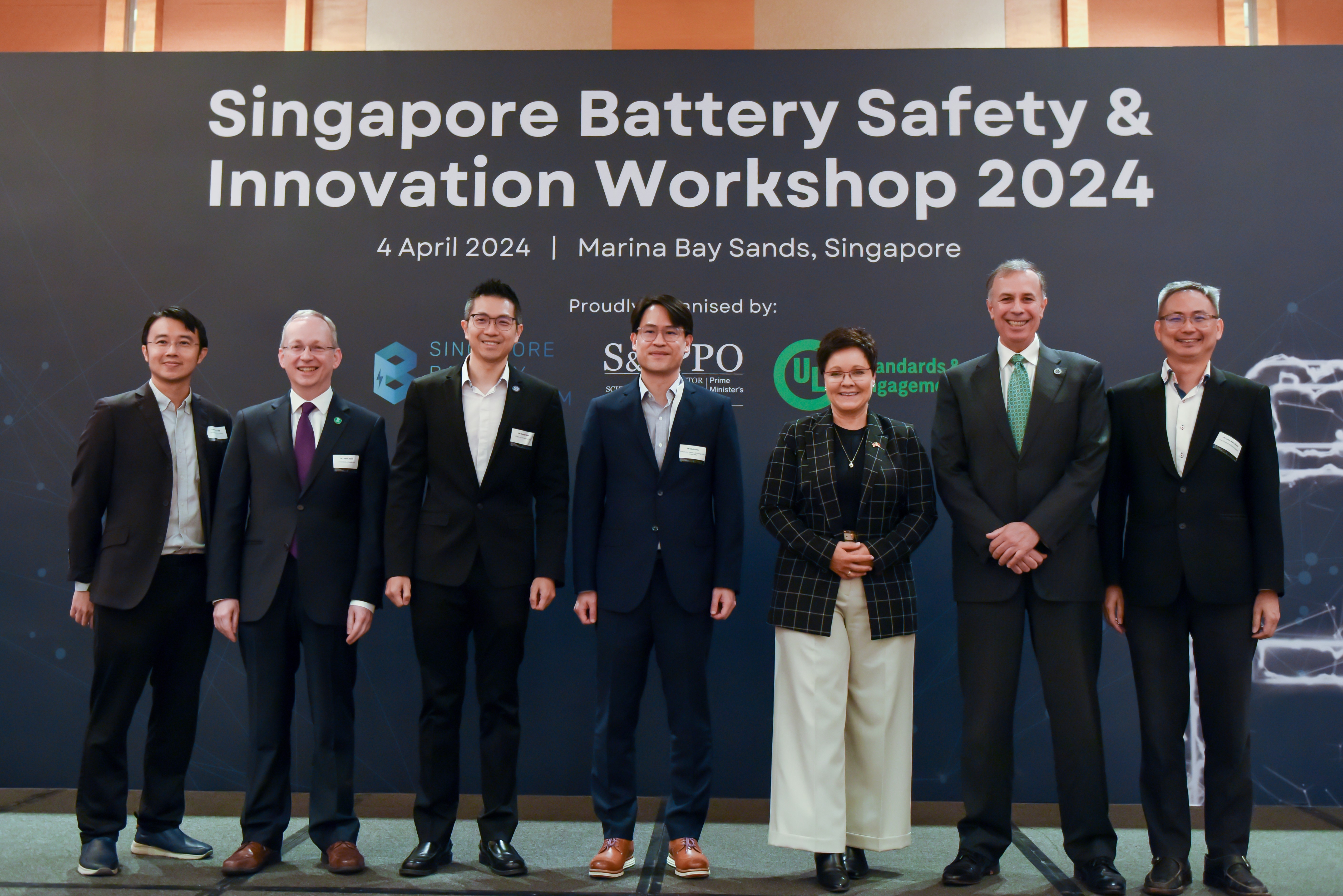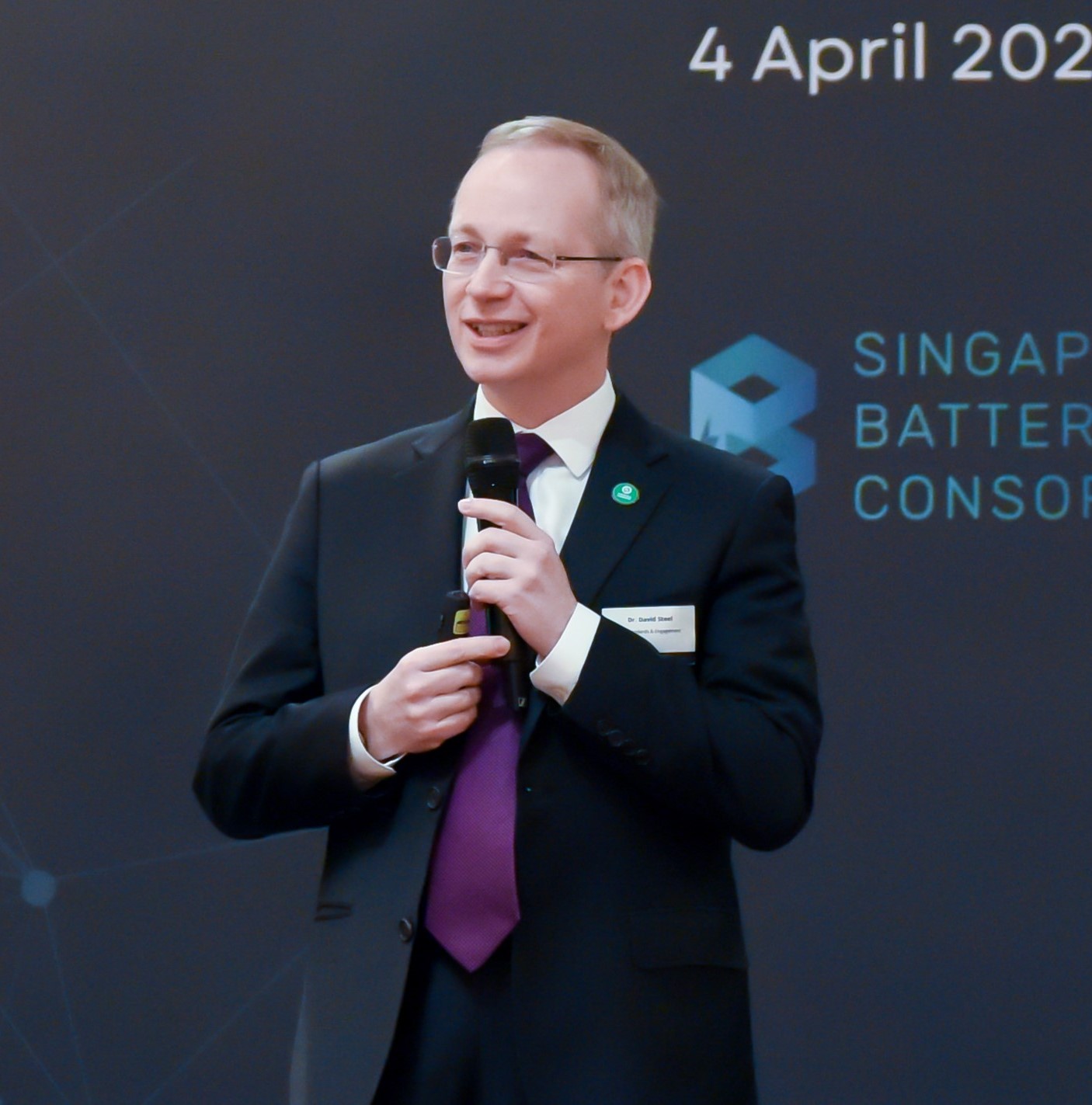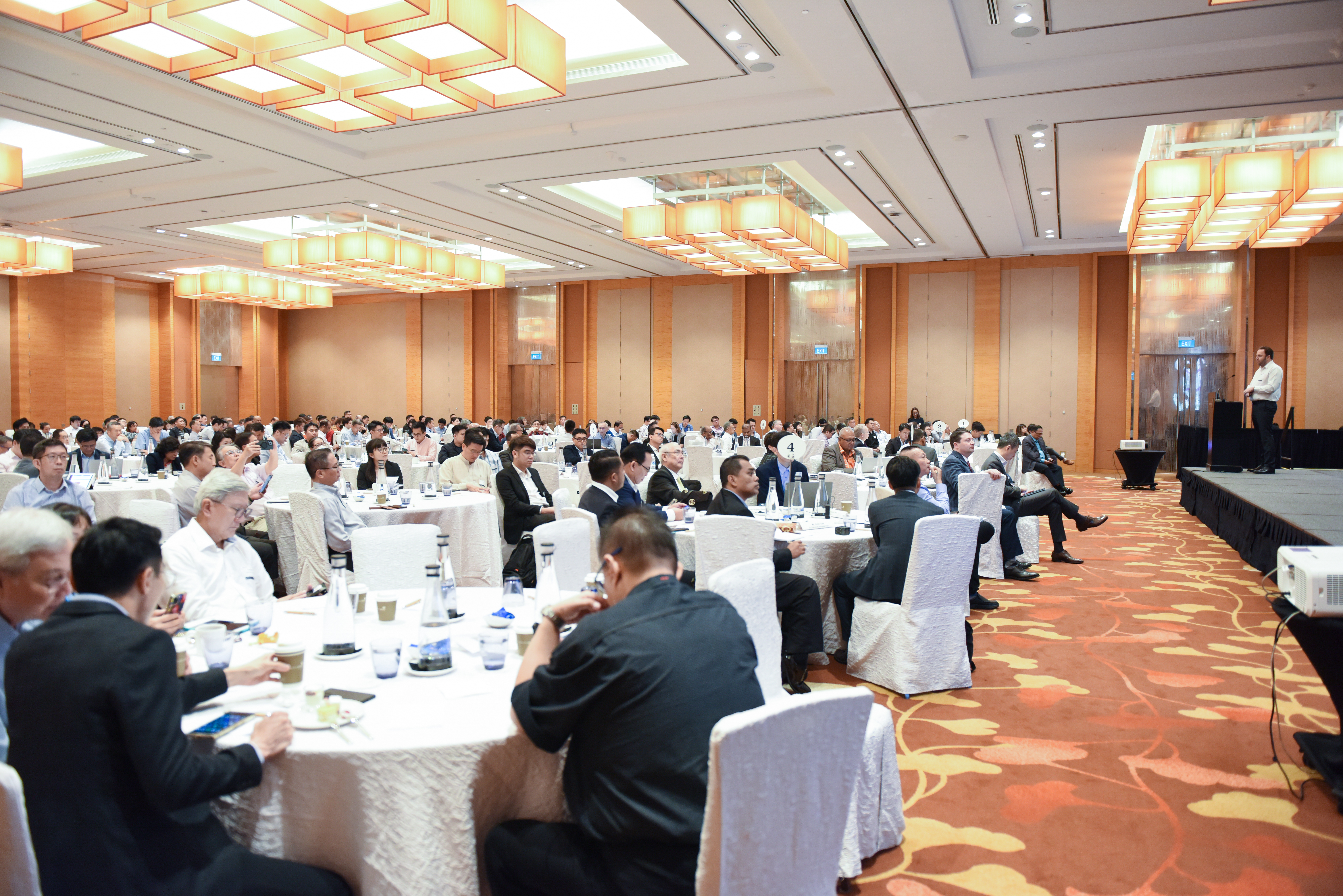Takeaways from the 2024 Singapore Battery Safety and Innovation Workshop

“Batteries are everywhere. We rely on batteries and energy storage technologies, from the mobile devices in our pockets to the applications that will enable the global transition to clean energy… But as we consider this transition, safety must be a part of the discussion.” – Dr. David Steel, Executive Director, UL Standards & Engagement

On April 4, 2024, UL Standards & Engagement Executive Director Dr. David Steel delivered keynote remarks at the 2024 Singapore Battery Safety and Innovation Workshop. The event was organized by the Singapore Battery Consortium, ULSE, and the Singapore Public Sector Science & Technology Policy and Plans Office, and convened experts from industry, academia, and the public sector, to discuss industry developments and safety trends regarding lithium-ion batteries. Approximately 350 stakeholders participated in the event from countries including the Philippines, Vietnam, Indonesia, Malaysia, and Fiji.
Speakers at the event addressed issues including electric mobility, battery safety, and energy storage systems. During his address, Steel commended Singapore for its commitment to helping drive battery innovation and the development of the battery economy. In 2018, the country adopted UL 2272, the Standard for Electrical Systems for Personal E-Mobility Devices, which reduces risks of explosion, fire, rupture of battery, electrolyte leakage, and electric shock from devices including e-scooters and hoverboards. Additionally, Singapore has instituted the Singapore Green Plan 2030, an initiative that strengthens the country’s commitments under the UN’s 2030 Sustainable Development Agenda and Paris Agreement, and positions Singapore to achieve its long-term net zero emissions aspiration by 2050.
What Are the Safety Risks of Lithium-Ion Batteries?
Rechargeable lithium-ion batteries have gained widespread popularity in recent decades due to their high efficiency and power-to-size ratio. They are used to power products ranging from small electronics to electric vehicles, and they are even used to store electric grid power via battery energy storage systems. This technology, however, is not without risk. Although usage is widespread, lithium-ion batteries that are damaged, malfunctioning, or counterfeit can slip into thermal runaway, an uncontrollable, self-heating state that can end in fire.
“Singapore has been at the heart of this effort for quite some time,” Steel said. “Battery technology is key to reducing the bulk of the world’s greenhouse gas emissions – a commitment Singapore is dedicated to achieving.”
Steel highlighted the country’s adoption of standards for e-mobility. Additionally, he invited attendees to continue collaborating after the conference by participating in the ULSE standards development process.
“The best approach to accomplishing our global ambitions for a more sustainable yet safer world is to create more platforms where different stakeholders can come together to exchange ideas, learn best practices, seed partnerships, and build capacity to support our peers in the region and beyond,” Steel said. “Together, we can lead the charge toward a future where the new norm could be defined by this new wave of electrification.”
Speakers also included Adam Barowy, research engineer at the Fire Safety Research Institute of UL Research Institutes, and Sean DeCrane, director of health and safety operational services at the International Association of Fire Fighters, and Member of the UL FSRI advisory board. UL Standards & Engagement thanks all speakers and participants for their commitment to safety and innovation in the global transition to clean energy.
